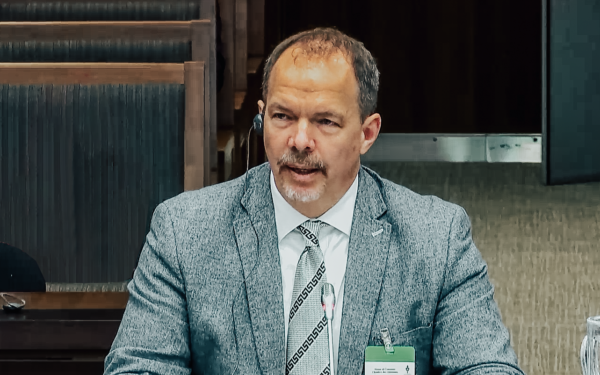As Canada lags behind in IPv6, Telus steps up to make the transition. CIRA encourages other ISPs in Canada to do the same.
It seems that everyone is talking about the Internet of Things (IoT) lately. At the 2016 Consumer Electronics Show (CES), the IoT was the hot topic, with dozens of organizations championing the promise of a truly inter-connected world. From baby bottles and jewellery to cooking appliances and batteries, there appears to be no shortage of innovative (and sometimes bizarre) ideas to use the Internet to make our lives easier or more efficient.
Here’s the problem.
The Internet of Things is IPv6. And until we all migrate to IPv6, we will never realize that promise. Jeff Urbanchuk put it bluntly in his recent blog post The Promise of Connectivity at CES Means Nothing without IPv6: “the transformative effects of the Internet of Things will never be felt as long as device manufacturers, web content developers and consumer technology interests still operate on yesterday’s Internet.”
Cisco estimates that with the growth of the IoT, we will add 50 billion devices to the Internet over the next few years. That’s 50 billion devices that will stress what is an essentially depleted store of IPv4 addresses (ARIN allocated its last block of IPv4 addresses last year). Despite the hype, the discussion about IPv6 has really been limited to the technical community (and sometimes it’s even ignored among those who should know better – in the ITU’s new 60+ page report Harnessing the Internet of Things for Global Development, IPv6 is mentioned a scant six times).
Most depressing to me has been the state of IPv6 in Canada. We’ve lagged behind our global counterparts; in fact, until recently the IPv6 adoption in the U.S. was more than 40 times that of Canada.
That changed recently, however, when one of Canada’s largest ISPs, Telus, made the transition to IPv6 (pdf). Telus has about 10 per cent share in the Canadian Internet service market, yet the results of their transition are inspiring:

Telus’ move to IPv6 resulted in a tenfold increase in adoption, putting us on par with countries like Brazil and Finland. Among the big service providers in Canada, Telus is leading the charge to build a better Internet for the benefit of all Canadians, at least as far as IPv6 goes. However, our country can certainly do better. Three of our big telcos control nearly 50 per cent of the ISP market, and they have yet to make any real progress on deploying IPv6. I hope they follow Telus’ lead and help to bring IPv6, and the promise the IoT offers, to Canada.
That said, if the IoT doesn’t motivate you to call your ISP and demand IPv6, consider this – if you have an xBox One and your ISP doesn’t offer IPv6, you might be missing out.
NOTE: In no way do I want to diminish the work of the smaller, more regional ISPs in Canada. They’ve been leading the way with IPv6 adoption, implementing DNSSEC, and a host of other innovative technologies for many years. But the fact is that the big three telcos provide Internet access for the vast majority of Canadians. They’re going to be responsible for us to make significant gains in IPv6 adoption.
Byron Holland (MBA, ICD.D) is the president and CEO of the Canadian Internet Registration Authority (CIRA), the national not-for-profit best known for managing the .CA domain and developing new cybersecurity, DNS, and registry services.
Byron is an expert in internet governance and a seasoned entrepreneur. Under Byron’s leadership, CIRA has become one of the leading ccTLDs in the world, with over 3 million domains under management. Over the past decade, he has represented CIRA internationally and held numerous leadership positions within ICANN. He currently sits on the Board of Directors for TORIX, and is a member of the nominations committee for ARIN. He lives in Ottawa with his wife, two sons, and their Australian shepherd, Marley.
The views expressed in this blog are Byron’s opinions on internet-related issues, and are not necessarily those of the organization.




